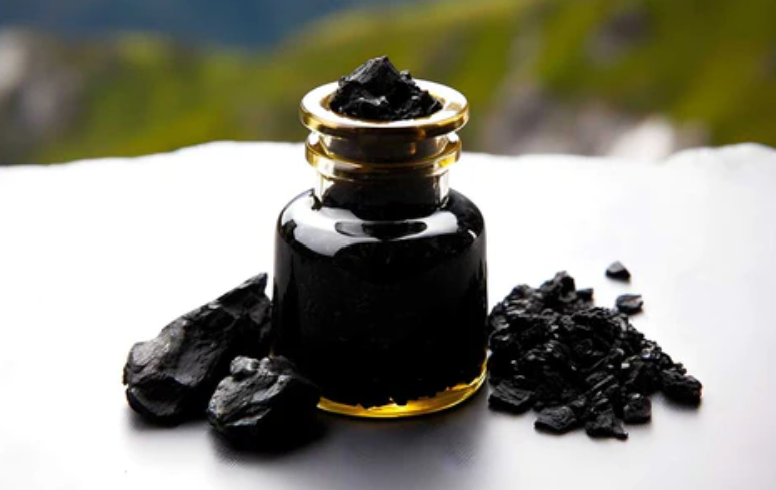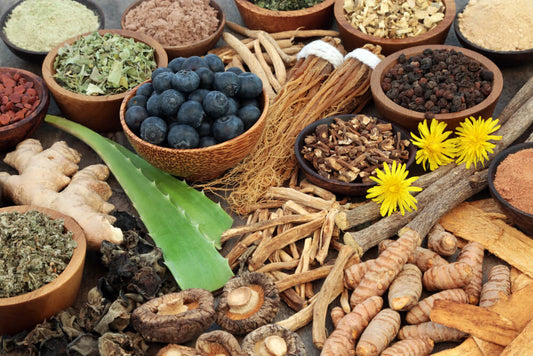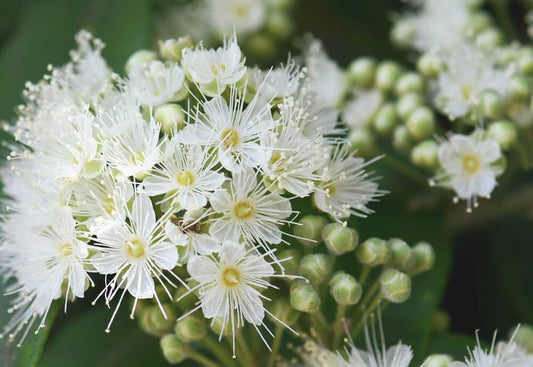
Shilajit for Stress: Exploring Natural Relief and Potential Benefits
If you’re exploring natural ways to combat stress, you might have encountered Shilajit – a substance used for centuries in Ayurvedic medicine. Does Shilajit actually help with stress?
This article delves into the adaptogenic qualities of Shilajit, its effects on stress hormones like cortisol, and provides practical insights into incorporating Shilajit into your stress management routine.
By unpacking scientific evidence and traditional wisdom on Shilajit for stress, we aim to empower you with information so you can make an informed decision about its role in fostering your mental well-being.
Key Takeaways
- Shilajit has adaptogenic properties that help the body handle stress by managing the half-life of cortisol and enhancing overall stress resilience.
- In addition to stress management, Shilajit supports cognitive functions and mental health, potentially aiding in Alzheimer’s prevention and recovery from brain trauma due to its fulvic acid content.
- While incorporating Shilajit into a daily routine can be beneficial for stress management, it’s important to consult a healthcare provider for personalised advice and to ensure its quality and safety, especially since some individuals should avoid its use.

Shilajit's Role in Stress Management
Shilajit plays a crucial role in stress management through its adaptogenic properties, assisting the body in responding to both physical and mental stress. Notably, Shilajit may extend the half-life of cortisol, the body’s primary stress hormone, thereby maintaining its normal levels during stressful events.
The benefits of Shilajit go beyond mitigating acute stress responses. Regular consumption of Shilajit supplements can also contribute to long-term resilience to stress, as Shilajit attenuates behavioural symptoms potentially.
Understanding Cortisol and Stress
Often dubbed the ‘stress hormone,’ cortisol orchestrates our body’s response to stress. However, sustained high cortisol levels can wreak havoc on our bodies, leading to issues like chronic fatigue, cognitive disorders, and digestive problems. Shilajit may offer a novel approach to modulating this response, not by directly altering cortisol levels, but by prolonging its presence in the blood, potentially leading to more efficient management of cortisol-related stress responses.
Shilajit’s role extends beyond cortisol management. It may improve blood circulation and aid in detoxification, mechanisms vital for maintaining a healthy stress response. By enhancing the body’s resilience, taking Shilajit might help us adapt to stress more effectively, contributing to overall well-being.
The Adaptogenic Properties of Shilajit
Shilajit is considered an adaptogen, a class of herbs known to help the body resist a variety of stressors. In Ayurvedic tradition, Shilajit is recognized for its support to the adrenals, aiding in maintaining vitality while managing stress.
Interestingly, Shilajit’s adaptogenic potency can be amplified when used in combination with other adaptogens, like ashwagandha. This is due to Shilajit’s ability to enhance the bioavailability and benefits of these herbs. It’s like a force multiplier in your stress-fighting arsenal.
The Science Behind Shilajit and Mental Health
Beyond stress management, Shilajit has long been used to enhance cognitive function and memory, with recent research lending credibility to these traditional uses. A key compound in Shilajit, fulvic acid, shows promise for blocking tau protein aggregation, offering potential in Alzheimer’s disease prevention and therapy. Additionally, fulvic acid has demonstrated neuroprotective effects in cases of brain trauma.
Studies also indicate improvements in neurological recovery following traumatic brain injury, suggesting that Shilajit can lead to decreased brain water content, reduced blood-brain barrier permeability, and lower intracranial pressure. With its potent antioxidant properties, fulvic acid contributes to these overall cognitive benefits, making Shilajit a promising supplement for mental health.

Ayurvedic Insights on Shilajit for Stress Relief
In Ayurveda, Shilajit and Shilajit powder are revered for their adaptogenic properties that strengthen the body’s innate resistance to mental and physical stress. Ayurvedic practitioners believe Shilajit helps stabilise the Vata and Pitta doshas - the dynamic forces governing our body and mind. This stabilisation contributes to serotonin regulation, offering relief from anxiety symptoms such as restlessness and uneasiness.
The wisdom of Ayurveda, the foundation of ayurvedic medicine, thus aligns seamlessly with modern research, underscoring the benefits of Shilajit for stress relief. But the scope of Shilajit’s potential benefits extends far beyond stress management.
Potential Health Benefits of Shilajit Beyond Stress
Shilajit’s holistic health benefits stem from its adaptogenic actions, which contribute to overall health. These include enhancing energy production and supporting immune system function, both of which are key to maintaining resilience to stress. Shilajit is also known for its antioxidant activities, potentially playing a role in reducing inflammation. This is especially valuable in today’s stress-laden life, where chronic inflammation is a common issue.
Moreover, Shilajit’s numerous health benefits include:
- Detoxifying effects
- Support for metabolic health
- Promotion of the elimination of toxins
- Potential enhancement of mineral absorption, which may contribute to bone health
By promoting the elimination of toxins and potentially enhancing the absorption of minerals, Shilajit could help us tackle stress from multiple angles.
How to Integrate Shilajit into Your Stress Management Routine
Integrating Shilajit into your stress management routine is not as daunting as it might sound. To make the most of Shilajit’s stress-relieving properties, it is recommended to consume it regularly and consistently. By making it part of your morning routine, you can help increase your body’s resilience to stress throughout the day.
Although Shilajit is not typically found as a food source, it can be added to various beverages, expanding the options for its integration into daily stress management practices. From your morning coffee to your post-workout smoothie, Shilajit can be easily incorporated into your diet.
Optimal Dosage and Timing
The recommended dose of Shilajit is 300 to 500 milligrams per day, ideally divided into two doses. However, it’s important to remember that everyone’s body is different, and what works for one person might not work for another. Thus, consulting a healthcare provider is essential due to the lack of a universally standard dose.
To leverage Shilajit’s benefits, it’s best consumed in the early morning hours on an empty stomach. Its energising effects might interfere with sleep, so it’s advisable not to take Shilajit before bedtime. To enhance its absorption, you can take it with warm water or milk, adding natural sweeteners like honey or jaggery if desired.

Combining Shilajit with Other Stress-Relief Practices
Shilajit’s stress-relieving effects can be amplified when combined with other stress management practices. Yoga, for instance, is known for its stress-reducing benefits and complements Shilajit’s adaptogenic properties, creating a synergistic impact on managing stress.
Similarly, meditation can be deeply enhanced by Shilajit’s cognitive-supporting effects, potentially allowing for a more focused and profound meditation experience. A holistic approach encompassing Shilajit, and these practices can lead to a comprehensive stress management routine.
Precautions When Using Shilajit for Stress
While Shilajit is generally safe for most people, certain individuals should avoid it. This includes individuals with certain health conditions such as sickle cell anaemia, hemochromatosis, or thalassemia, as well as those who are pregnant, breastfeeding, or children.
Additionally, Shilajit may interact with medications, particularly those that affect hormone levels or are iron based. As the long-term safety of Shilajit in humans has not been fully established, it’s recommended to consult with a healthcare provider before taking Shilajit supplements, especially for those with underlying health issues.
Above all, ensure you’re consuming purified Shilajit rather than unprocessed Shilajit to mitigate risks from contaminants such as heavy metals and free radicals.
Choosing the Right Shilajit Supplement
In the quest for genuine stress relief through natural supplements, selecting the right Shilajit is paramount. The market is awash with various Shilajit products, making it challenging to discern the authentic from the subpar. High-quality Shilajit, often found in resin form, is harvested with traditional methods at high altitudes in the Himalayas, ensuring its purity and potency. It's crucial to opt for Shilajit that has been purified to eliminate contaminants such as heavy metals and free radicals, ensuring safe and effective use.
For those seeking a trusted source of premium Shilajit, Superfoods Australia stands out as a reputable provider. We are dedicated to offering authentic Shilajit supplements, ensuring that each batch is rigorously tested for quality and purity. By choosing Superfoods Australia for your Shilajit needs, you can be confident in the product's authenticity and its potential to enhance your stress management routine safely.
Remember, while Shilajit offers promising benefits for stress relief and overall mental well-being, consulting with a healthcare provider before incorporating it into your routine is advisable. This step is essential to tailor the supplement to your individual needs and to integrate it effectively with other health practices for optimal results.
Frequently Asked Questions
What happens if we take Shilajit daily?
Taking Shilajit daily may have potential side effects such as lowering blood pressure, which can be dangerous for individuals on high blood pressure medications. However, some research suggests that it may also help improve bone mineral density in postmenopausal women, possibly reducing the risk of conditions like osteoporosis and fractures.
What does Shilajit do to the brain?
Shilajit, specifically its component fulvic acid, may enhance memory and help prevent the accumulation of tau protein, which could damage brain cells and impair cognitive function. This makes it beneficial for brain health.
When should Shilajit be avoided?
Shilajit should be avoided by pregnant or breastfeeding individuals, children, and those with hemochromatosis or testosterone concerns. It is important to take these factors into consideration before using Shilajit.
What are the disadvantages of Shilajit?
Shilajit may have heavy metal contamination, including lead, arsenic, and mercury, which can lead to serious health problems. Some individuals may also experience allergic reactions, such as skin rashes and itching.
What is Shilajit, and how does it help with stress?
Shilajit is a nutrient-rich resin that acts as an adaptogen and helps the body manage stress by extending the half-life of cortisol, the primary stress hormone. This in turn helps in maintaining normal stress hormone levels during stressful events.













